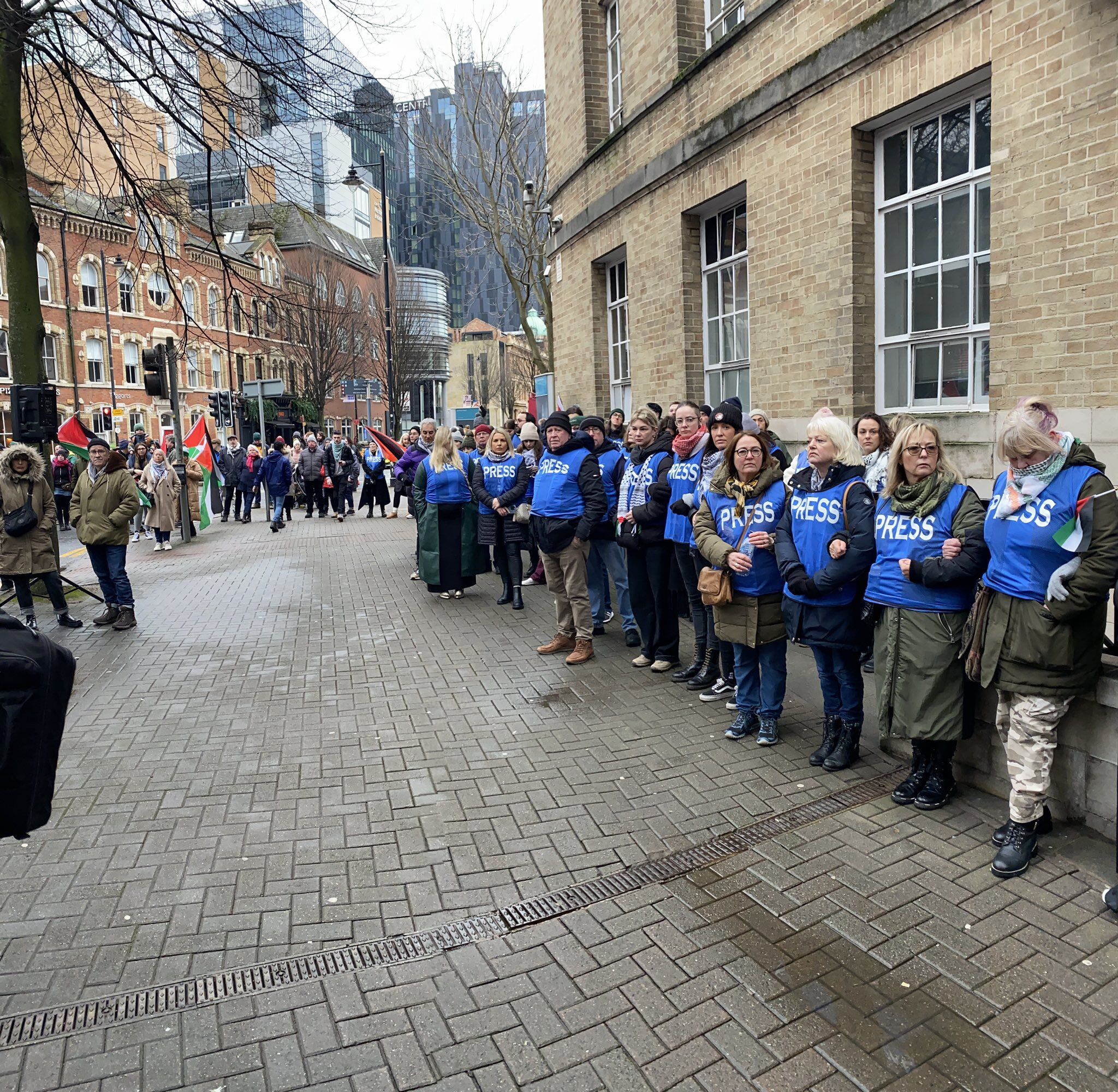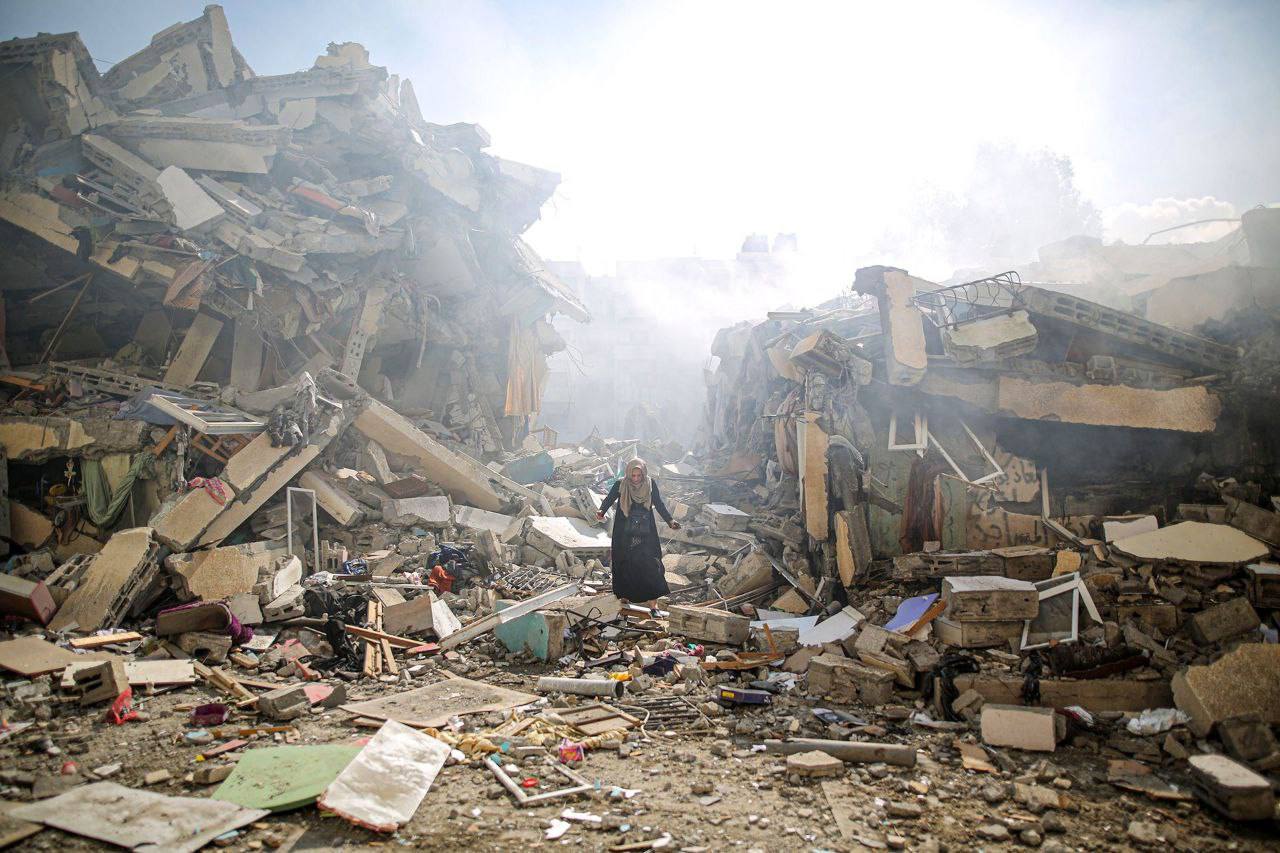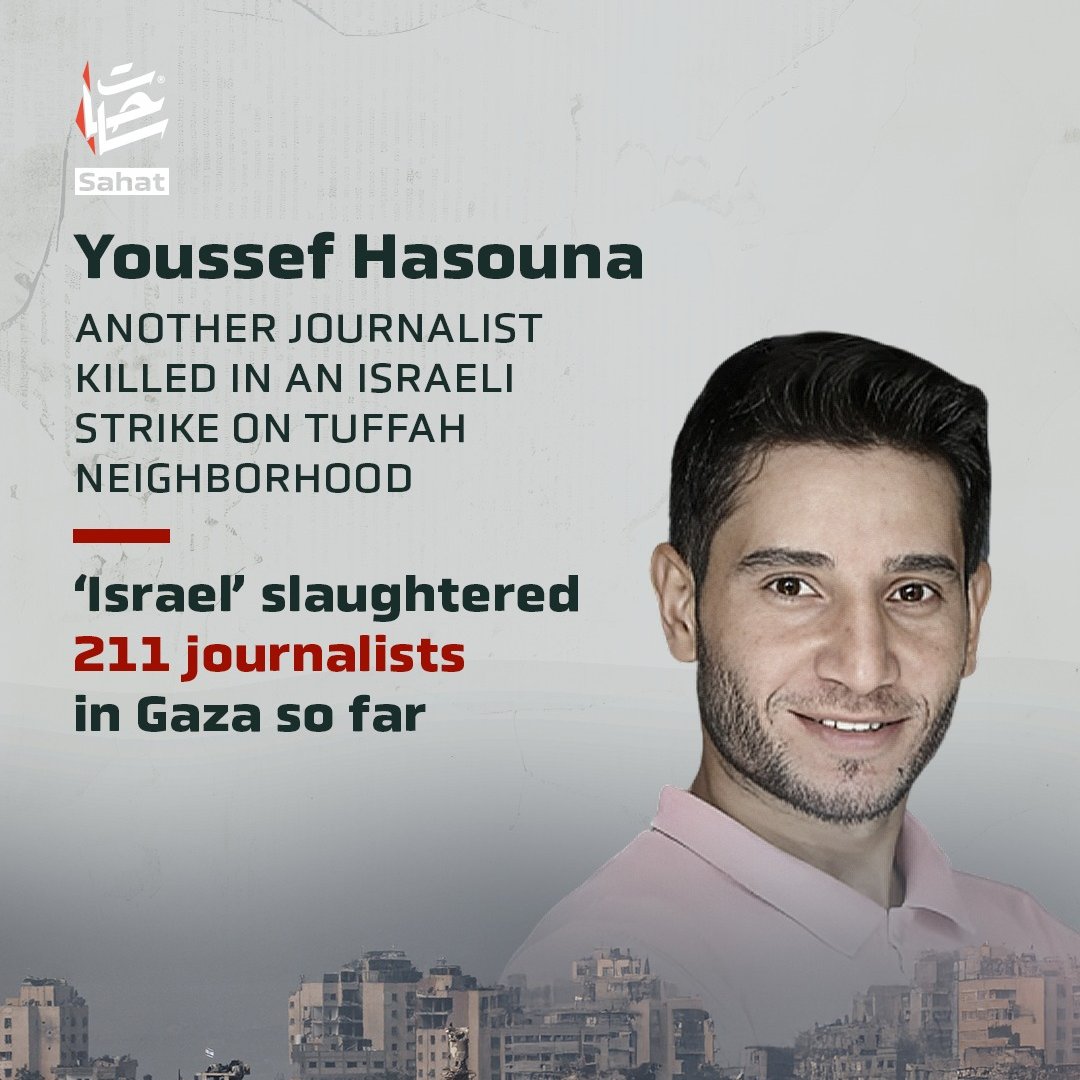US President Donald Trump’s abrupt announcement proposing that the US take “ownership” of the Gaza Strip – battered by a 15-month Israeli offensive – has left senior officials, foreign counterparts, and political observers perplexed, press reports said on Wednesday.
While Trump presented the idea as a formal initiative, advisors and insiders described it as underdeveloped and lacking the necessary planning to make it a viable policy, according to The New York Times. During his first term, Trump was also known for presenting unvetted ideas as policy, leaving his aides scrambling to justify what the president unexpectedly said.
During a joint press conference with Israeli Prime Minister Benjamin Netanyahu, Trump read his proposal from a prepared statement, but sources within the administration said the plan had not been discussed in any formal capacity.
“There had been no meetings, no interagency consultations, no feasibility studies – nothing,” one senior official familiar with the matter was quoted by The New York Times as saying.
Idea without foundation
The lack of preparation behind the announcement was obvious, according to the Times.
Officials from the Pentagon and State Department – critical stakeholders in any foreign policy initiative of this magnitude – were not consulted.
There were no assessments of the military or financial requirements needed to implement such a plan, nor any evaluations of its legal or diplomatic implications.
The announcement also caught Netanyahu off guard.
According to individuals briefed on the matter, Trump told the Israeli leader of the proposal just minutes before their public appearance.
While Netanyahu appeared pleased during the press conference, the broader international response has been far cooler, and even hostile.
The announcement was met with immediate opposition from key US allies in the Arab world, including Saudi Arabia.
Critics highlighted several glaring questions left unanswered by Trump’s proposal.
These include the logistics of removing Palestinian group Hamas, clearing unexploded ordnance, rebuilding Gaza’s infrastructure, and justifying such an action under international law.
There are also concerns about the fate of the some 2 million Palestinians living in Gaza, their home.
Trump suggested that residents could be relocated temporarily to neighboring countries such as Jordan or Egypt, but both nations have already rejected the proposal.
In his remarks, Trump claimed Palestinians would be eager to leave Gaza due to its uninhabitable conditions, a statement that drew further criticism for its tone and feasibility.
Trump is known for vaguely citing people said to hold certain opinions to justify a course of action he has decided upon.
Contradictions, mixed messaging
In a bid to clarify the president’s remarks, White House press secretary Karoline Leavitt downplayed the scope of the proposal, stating that Trump was merely seeking temporary solutions involving regional partners.
However, Trump’s comments during the announcement, including his willingness to put “boots on the ground” (soldiers) if necessary, signaled a far more ambitious and interventionist approach, according to The New York Times.
Senior administration officials have struggled to defend the proposal.
National Security Adviser Mike Waltz, speaking on CBS News, described the plan as a collection of “concepts” rather than a fully formed policy.
“The fact that nobody has a realistic solution, and he puts some very bold, fresh new ideas out on the table, I don’t think should be criticized in any way,” Waltz said.
He added that Trump’s announcement could spur other nations in the region to develop their own solutions if they find his proposal not to their liking.
Critics raise alarms
Many experts and former officials have dismissed the idea as implausible and dangerous.
Daniel B. Shapiro, a former US ambassador to Israel, described the proposal as “not serious” and warned it could worsen tensions in an already volatile region.
“The danger is that extremists within the Israeli government and terrorists of various stripes will take it literally and seriously, and start to act on it,” Shapiro said.
He also cautioned that the plan could jeopardize the ongoing release of hostages under the current ceasefire deal and undermine efforts toward normalization between Israel and Saudi Arabia.
Senior officials within the administration privately expressed similar reservations, calling the proposal a “fantastical event” born out of Trump’s ad hoc approach to foreign policy.
One advisor suggested that the plan would likely fade away as its practical challenges grow more and more apparent.
Trump’s approach to Gaza is consistent with his broader foreign policy style, which often frames international relations as transactional deals.
During his presidency, he has proposed similar ideas, including purchasing or otherwise acquiring Greenland, reclaiming the Panama Canal, and treating Canada as a potential 51st state.
His critics argue that such proposals lack serious consideration of geopolitical realities and international norms.
Trump’s vision for Gaza reflects his background as a real estate developer, viewing the region’s challenges as opportunities for reconstruction and investment.
His Middle East envoy, Steve Witkoff, also comes from a real estate background and reportedly influenced Trump’s thinking after visiting Gaza and witnessing the dire conditions in the war-battered enclave firsthand.
But David Friedman, who served as Trump’s ambassador to Israel, praised the proposal as “out of the box” thinking.
“It’s brilliant and creative,” Friedman said, while acknowledging the immense challenges involved.
“After 15 years of rebuilding, it could be a market-driven process,” he added, referencing Gaza’s potential as a waterfront destination according to Anadolu.
Broader implications, future steps
Despite the skepticism surrounding the plan, Trump’s announcement has already sparked debate among policymakers and international observers.
Supporters argue that it could serve as a catalyst for alternative solutions to the Gaza crisis, while critics warn of the risks associated with floating such half-baked idea.
The proposal’s timing also raises questions, given Trump’s ongoing efforts to reshape US foreign policy.
His administration has faced criticism for reducing the role of the US Agency for International Development (USAID) and other agencies responsible for humanitarian and development assistance.
Observers pointed to contradictions between his stated goals and his administration’s actions.
As the discussion around Gaza evolves, the lack of detailed planning behind Trump’s proposal underscores the challenges of addressing one of the world’s most complex conflicts.
Whether the idea gains traction or fades away quietly, its announcement highlights the unpredictable nature of Trump’s presidency and its impact on global diplomacy.
Proposal
At a news conference on Tuesday with Israeli Prime Minister Benjamin Netanyahu, Trump said the US “will take over the Gaza Strip, and we will do a job with it too,” and that if necessary, US troops would be sent in to turn it into “the Riviera of the Middle East.”
The controversial announcement sparked global outrage, with many Arab, European, and African countries, as well as the Organization of Islamic Cooperation, issuing statements condemning the proposal.
Trump first triggered an uproar last week by suggesting that Palestinians in Gaza should be relocated to Jordan and Egypt, calling the enclave a “demolition site” after Israel’s 15-month war that has claimed more than 47,500 lives. A ceasefire that took hold on Jan. 19 is currently in place.
The International Criminal Court (ICC) issued arrest warrants in November for Israeli Prime Minister Netanyahu and his former Defense Minister Yoav Gallant for war crimes and crimes against humanity in Gaza.
Israel also faces a genocide case at the International Court of Justice for its war on the enclave.




 (@IfNotNowOrg)
(@IfNotNowOrg) 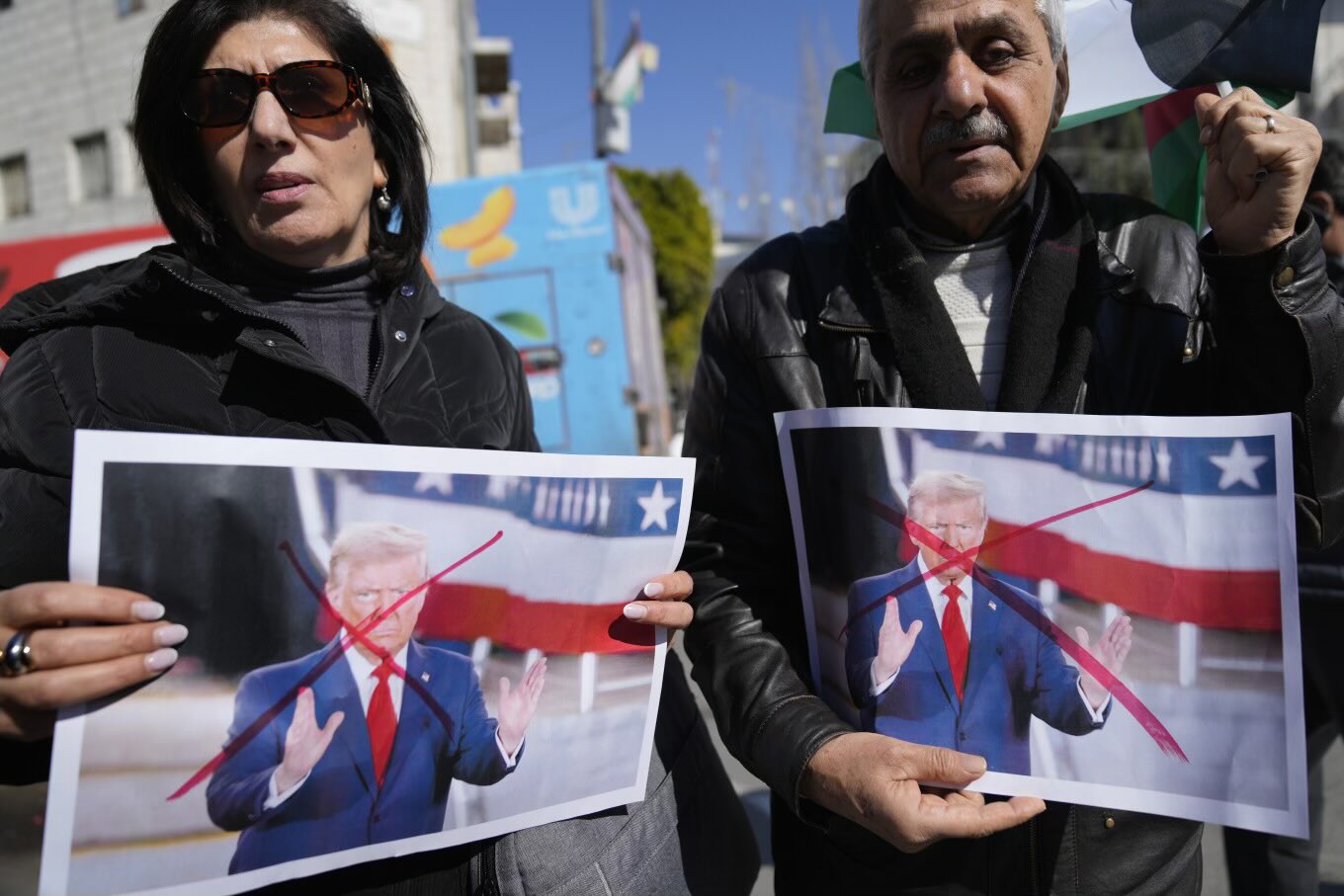
 Trump is a weather vane without direction
Trump is a weather vane without direction
 Top administration officials directly contradicted President Trump over his proposal to force Palestinians out of Gaza and take it over, insisting that he had not committed to using U.S. troops to clear the territory.
Top administration officials directly contradicted President Trump over his proposal to force Palestinians out of Gaza and take it over, insisting that he had not committed to using U.S. troops to clear the territory. 

 (@Barlofa)
(@Barlofa) 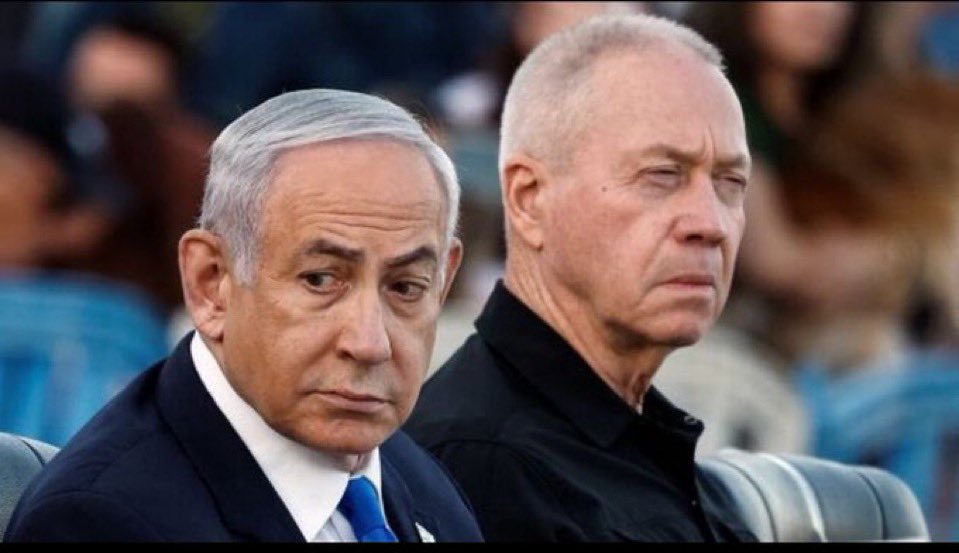

 JUST NOW: The International Criminal Court has issued ARREST WARRANTS for NETANYAHU & GALLANT.
JUST NOW: The International Criminal Court has issued ARREST WARRANTS for NETANYAHU & GALLANT. 